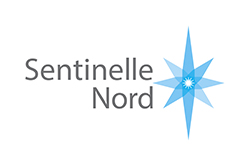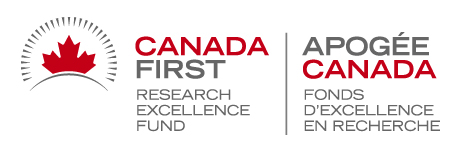Sentinel North Partnership Research Chair on Probing Life and the Environment with Light
Chaires de recherche en partenariat
Domain(s):
- Recherche sur le Nord
- Sciences de l’administration, sciences appliquées et sciences pures

Antoine Godin
Assistant professor
Faculty of Medicine
Antoine Godin is an assistant professor at Université Laval’s Faculty of Medicine. He holds a doctorate
in physics from McGill University and develops new methods for probing otherwise imperceptible
phenomena in living tissues. Godin studies complex biological processes in intact cells using fluorescence microscopy.
Through his work, Godin seeks to gain a better understanding of how molecular phenomena influence
tissue organization and tissue function. He is interested in the impact of the brain’s continuous reorganization at different stages of the development of neurological and brain disorders.
Expertises
Physical
Optical
Biophysics
Neuroscience
Applied mathematics
Fluorescence microscopy
Image and signal analysis
Objectives
- Play an active role in training highly qualified researchers on projects that combine photonics, nanotechnology, mathematics, neuroscience, and environmental science.
- Establish multidisciplinary partnerships for the development of innovative methods that use light as a tool to elucidate complex problems in neuroscience and environmental science in a boreal context.
- Develop technologies that can be used to analyze biological signals and decode the information contained in images.
- Take tools developed for microscopy image analysis and extend them to the macroscopic level for applications in environmental science, particularly for northern research based on measurements taken with autonomous instruments that capture large-scale images at a distance.
- Quantify the structural and functional changes of the brain in order to develop more effective technologies for the early detection of neuropathologies such as Alzheimer’s disease, Parkinson’s disease, epilepsy, and autism.
- Study the reactions of neural networks in response to induced stress to gain a better understanding of the resilience of some individuals in the face of adversity.
- Understand how changes in the biotic and abiotic environment can modify the brain at different levels, from the molecular to the systemic.
This research chair will help further our understanding of how tissue organization affects tissue function. The results will serve as a basis to gain a better understanding of how network remodelling in the first stages of a pathology can have drastic effects over the long term.
Inversely, the possibility of measuring slight changes in tissue organization will allow us to develop new tools for early detection. These non-invasive approaches that employ near infrared light will make it possible to image deep tissues and study tissue organization through skin. This will open the door to the development of new portable, non-invasive technologies that could be used by doctors or by researchers working in remote northern areas.
Mission
Develop new tools that use light and data processing to probe the organization of living tissues and the environment, from the nanoscopic all the way up to the scale of the vast northern expanses.



Partners
Pfizer
Sentinel North
Fondation CERVO
The Sentinel North Partnership Research Chair on Probing Life and the Environment with Light is made possible by support from Sentinel North and Fondation CERVO for a total of one $1 million over five years. Funded by the Canada First Research Excellence Fund, the Sentinel North programallows Université Laval to implement a transdisciplinary approach drawing on pooled expertise in northern science, optics/photonics, cardiometabolic health, and brain health to improve our understanding of the northern environment and its impact on human beings and their health.
The creation of this chair allowed Université Laval to recruit a new professor, chairholder Antoine Godin.
Benefits
In addition to fundamental advances in neuroscience, the portable, noninvasive photonic technologies developed through the Chair will be of direct benefit for field research in remote northern ecosystems. The aim is to transform our understanding of the impacts of climate change on life and the environment—one of the main goals of the Sentinel North initiative.
Highly multidisciplinary by design, this research program revolves around training qualified personnel from various scientific research spheres. Physicists and biologists will work together to achieve the set objectives. These students and postdoctoral interns will be trained in a transdisciplinary environment, ensuring they become more well-rounded researchers.
Sentinel North Partnership Research Chair on Probing Life and the Environment with Light
CERVO Brain Research Centre / Centre de recherche CERVO
2601 chemin de la canardière, bureau G-4339
Québec (QC) G1J 2G3, Canada
Tel.: 418 821-4603